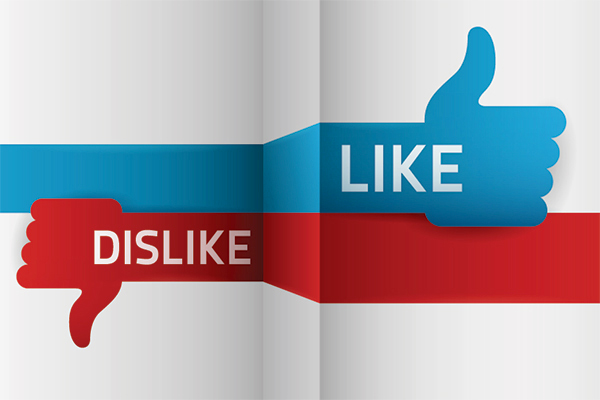I first met Jules Evans at a Franco-British council's conference on the measurement of well-being. That's him with the microphone, and yours truly listening intently.
Shortly after the event, Jules produced a wonderful 10 minute video and a few weeks later I enjoyed his excellent question to Lord Layard at an RSA event called "Happiness, New Lessons" . With one question, Jules showed clearly that Lord Layard is basically a Benthamite, who chooses not to distinguish between different kinds of pleasures, and takes happiness to be little more than a personal feeling.
For weeks thereafter, I enjoyed his 'Politics of Well-being' blog, which is a lively, stimulating, and frequently hilarious read. I looked forward to it not merely for information relating to well-being, and our capacity (or not) to measure it, but because Jules consistently applied insights from both philosophy and psychology- the work was broad and deep and grounded, but not blinkered by a single perspective.
Philosophy and Psychology
In this respect I share Jules's view that the academic divide between philosophy and psychology is an unfortunate loss for both disciplines, which really need each other to make sense of human experience. In fact in my own Phd thesis on Wisdom I write about this, because you feel the insanity of this division intensely when trying to fathom what it might mean to be wise:
"Philosophy and psychology share an intellectual heritage that tried to make sense of the workings of the mind, the reliability of knowledge, the basis of morality, and our understanding of the world. Such questions were central to the rationalist and empiricist traditions, but gradually, at least in the Anglo-American tradition, the concerns of the two disciplines diverged, with philosophy becoming increasingly concerned to become a foundational discipline, an under-labourer for science, concerned with epistemic warrant in logic and language; while psychology sought to become a natural science, focusing on predicting and measuring human behaviour... In this process of separation, I believe both disciplines lost something vital, and when they came together again under the auspices of cognitive science, they both looked like paler devalued versions of themselves, perpetuating an impoverished view of the mind and our capacity to understand it."
Philosophy for Life, and other dangerous situations
This 'bi-lingualism' is one of the things that make Jules's writing so readable, and I therefore slightly regret the fact that in recent months he seems to have rebranded himself as a philosopher first and foremost. His new blog 'Philosophy for Life' is just as good as the politics of well-being, and indeed is very similar in spirit to the old one, but it has been reframed now as a platform for his book: Philosophy for Life and Other Dangerous Situations.
The book has a Video trailer here and I finally got round to finishing it a couple of days ago.
In the book, Jules shares his admiration for some remarkable figures (I particularly liked Jean Vanier, the 'kindly polar bear' on p227) and is adept at weaving in his personal experience (including a near-death spiritual experience following a skiing accident) and shows impressive philosophical and psychological acumen throughout, as well as considerable wit. So when Jules is allowed to let rip, as he does in his weekly blogs, the text is wonderful to read.
However, to honour these considerable authorial qualities, I should say that I felt they were undermined, not supported, by the tone and structure of the book as a whole. My impression is that the publishers felt Jules's voice by itself wasn't enough to get people to buy the book, so they added a superstructure that made the book appear more like a 'how-to' guide and made it more explicitly about philosophy as such- to frame the 'offer' more clearly to prospective buyers.
That's life, I guess, and publishing is a 'dangerous situation' of sorts. However, I would have been happier just to hear Jules share his insights and experiences, and pose his pertinent questions. Instead in several places I had to deal with an overarching narrative that felt exogenous, and enjoyed neither pretending the book was read over the course of the day, nor straining to imagine what ancient philosophers might eat for lunch.
That said, I hope you can see from the thoughts above and quotations below that the book is worth reading, and I would strongly encourage you to sign up to his blog to learn more about what he is thinking about on a regular basis.
This terror of making a bad impression is the cause of many of our civilised discontents
Extracts:
On his own mental health at university: "What help could literature and philosophy possibly be to me? My brain was a neurochemical machine, I had broken it, and there was nothing I could do about it. Somehow, after university, I had to plug this broken apparatus into the great steel machinery of the market, and survive. I graduated in 1999 with a good degree and, to celebrate, had a nervous breakdown." (p3)
On the longing for social acceptance: "We internalise the gaze of others, and this internal spectator becomes all-powerful over us...This terror of making a bad impression is the cause of many of our civilised discontents."(p161)
On the alleged cult of SES, The School of Economic Science: "To be fair to the school, if Plato set up his Academy today, or Epicurus set up his Garden, they would probably be accused of being cults." (p191)
On the path to societal wellbeing: "My hope is that we can find a better balance between the ancient idea of the good life, and a modern pluralist and liberal politics. It would recognise that well-being is not a simple concept that can be objectively defined, pinned down and measured by empirical science, and the world would be a much more boring place if it was. We should explore the plurality of philosophical approaches to well-being. We should treat citizens as rational adults who deserve to be brought into the conversation as equals. Empiricism balanced with practical reasoning. Instrumental techniques balanced with a consideration of values and ends. Science balanced with the humanities. Not one version of the good life, but several. Not a mass enforced march to an official well-being target, but groups of friends helping each other in their search for the good. That's what I would like to see." (p230)
The next time a philosopher tells you to practise rationality and self-control, laugh at them and pull their beard.
On the classic Dionysian/Socratic conflict: "They would say that the last people you should turn to for advice on life are philosophers. Look at them: weak, pale, stammering creatures, visibly unhealthy, palpably out of touch with their bodies and their societies. Nature has cursed them with weakness and timidity, so they wreak their revenge on nature by constructing their own artificial and self-conscious version of happiness. 'Only Virtue is happiness', the philosophers insist, and cough. But we Dionysiacs know they are lying, we know the genuine joy that comes from the body, from hunting and dancing and love. The next time a philosopher tells you to practise rationality and self-control, laugh at them and pull their beard." (p257)
Related articles
-
How can we give up bad habits for good?
Ian Burbidge
With the post-Christmas resolutions looming, when we try to address the worst of our seasonal over-indulgences, the question remains: how can we give up bad habits for good?
-
Why fake news doesn't swing elections
Tony Greenham
Fake news doesn’t swing elections, but neither does ‘truth’. We have always filtered new information to fit our existing prejudices. The real danger to our democracy is not an absence of truth, but an absence of trust.
-
Tell me a story? Or give me the figures?
Nathalie Spencer
What is the best way to influence stakeholders and generate change? Different approaches to generating change have different strengths, when should each be used to the best effect?




Be the first to write a comment
Comments
Please login to post a comment or reply
Don't have an account? Click here to register.